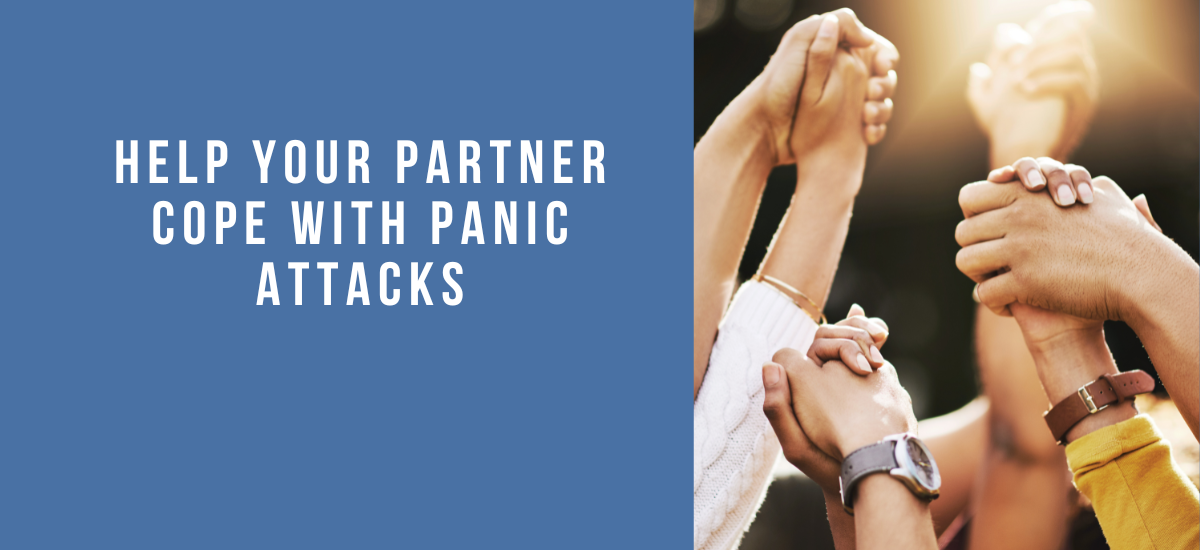A Guide To Helping Your Partner Cope With Panic Attacks

Introduction
Panic attacks are a common experience for many people, but they can be especially distressing for those who suffer from them. For partners of someone who experiences panic attacks, it can be difficult to know how to support and comfort them during these episodes. Here are some tips for how to support your partner through panic attacks:
Stay calm:
When your partner is experiencing a panic attack, it is important to stay calm and composed. This will help your partner to feel more at ease and less overwhelmed by the situation.
Listen:
Let your partner know that you are there to listen and support them. Ask them what they need, and be patient while they process their feelings and thoughts. Do not judge or dismiss their feelings, as this can make their panic attack worse.
Offer comfort:
Comfort your partner in a way that feels most soothing to them. This may involve holding their hand, giving them a hug, or simply being present and supportive.
Encourage breathing exercises:
Deep breathing is a simple and effective way to calm down during a panic attack. Encourage your partner to focus on their breathing and to take slow, deep breaths.
Provide a safe and quiet space:
Create a safe and quiet space for your partner to retreat to during a panic attack. Turn off the lights, close the curtains, and try to minimize distractions.
Avoid confrontation:
Do not confront your partner about their panic attack or try to reason with them during the episode. This will only add to their anxiety and make the panic attack worse.
Seek professional help:
If your partner’s panic attacks are persistent and affecting their quality of life, encourage them to seek professional help. A mental health professional can help them to identify the root cause of their panic attacks and develop a treatment plan.
Educate yourself:
Learn about panic attacks and their causes. This will help you to understand what your partner is going through and provide you with the tools to support them more effectively.
Be patient:
Panic attacks can be distressing and take time to resolve. Be patient with your partner and encourage them to take things one day at a time.
Take care of yourself:
It can be emotionally draining to support someone who experiences panic attacks. Make sure to take care of yourself, seek support from friends and family, and engage in activities that bring you joy and relaxation.
Conclusion
In conclusion, at Careme Health, we are committed to delivering affordable and evidence-based personalized care that sets us apart from the competition. Our world-class care services and approach to helping your partner cope with panic attacks ensure that our clients receive the best possible care and support to manage their health and well-being. With our dedicated and experienced team, we strive to provide a safe and supportive environment for all of our clients.
Related Articles

Letting Go With Grace: Emotional Tools for Closure
Letting go is never easy. Whether we are parting ways with a loved one, ending a relationship, leaving a job, or saying goodbye to a cherished chapter of life, the emotional weight can feel overwhelming. Yet, closure is essential for our emotional well-being. Without it, we carry unresolved grief, anger, regret, or longing that can seep into new relationships and experiences, holding us back from healing and growth.

Breakup Blues: How to Cope and Rebuild Your Self-Worth
A breakup often feels like a silent earthquake—unseen by others but devastating within. The pain doesn’t just come from the loss of a relationship, but from the crumbling of the life, identity, and future you built with another person. You may find yourself questioning your worth, doubting your value, and feeling isolated even when surrounded by people. In Indian society, where emotional expression is often discouraged and breakups can be stigmatized, this pain may feel even more overwhelming. But the truth is—while breakups may shake you, they do not define you. You are not broken; you are in a process of emotional reformation. And with the right tools, guidance, and support system, you can rebuild not just your self-worth but also your entire life narrative.

Healing After Heartbreak: A Mental Health Perspective
Heartbreak doesn't just break your heart—it can shatter your sense of identity, peace, and purpose. Whether the end was expected or abrupt, mutual or one-sided, short-lived or long-term, the aftermath often leaves people emotionally disoriented. In Indian culture, where societal expectations and family involvement in romantic relationships are prevalent, the pain is not just personal—it is public. Yet, very few are taught how to heal from emotional loss in a healthy, sustainable way.

Boundaries in Love: Saying ‘No’ Without Guilt
Love, in its truest form, should be a safe space—a space where individuality is not only respected but celebrated. Yet, in many relationships, especially in the Indian cultural context, love is often misunderstood as constant availability, complete sacrifice, and putting the other person first, always. As noble as this may sound, this version of love often leads to emotional exhaustion, suppressed resentment, and the erosion of one’s identity.

Gaslighting in Relationships: What It Is and How to Heal
Gaslighting is a form of emotional abuse that erodes your ability to trust your own perception. It’s a slow, insidious process that often begins with subtle doubts and ends with complete self-questioning. In romantic relationships—especially in the Indian context where silence, compromise, and duty are often mistaken for love—gaslighting can be even harder to recognize.

How Depression Can Affect Your Relationship—And What You Can Do
Depression is not just an internal struggle—it ripples outward, affecting relationships, routines, and the emotional fabric that holds people together. When someone is dealing with depression, it's not only their world that becomes dim—it can cast a shadow over their most intimate connections too. In a country like India, where open conversations about mental health are still rare and love is often equated with endurance, depression within a relationship can become invisible, misunderstood, or misjudged.
